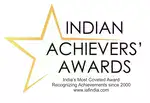CATI: The Quality Reset for Businesses Tired of Noisy Online Data
Most businesses today rely on online surveys (in some form) to understand customer behaviour, measure brand performance, and test product concepts. However, the sheer volume of online data often creates more confusion than clarity. Fraudulent responses, survey fatigue, and poor-quality data are common concerns that businesses face. This is where primary market research plays a pivotal role - helping brands cut through the noise to gather accurate, actionable market data.
Among the various types of primary market research, CATI (Computer-Assisted Telephone Interviewing) has re-emerged as a dependable and cost-effective solution. It offers the personal touch of interviewer-led surveys while harnessing the efficiency of technology. For businesses frustrated with the limitations of online surveys, CATI acts as a reliable primary market research tool that ensures precision, credibility, and depth.
Why Businesses are Frustrated with Standard Online Surveys
While online surveys remain popular for their scalability and cost-effectiveness, many organizations have begun to question their accuracy. The challenges below explain why more teams are turning back to primary market research methods like CATI, and why choosing the right primary market research tools matters.
- Low-quality and fraudulent responses: Rushed completions, “straight-lining” (selecting the same option throughout), and bot traffic can slip through basic checks. Panel conditioning and incentive gaming further distort results. Even with digital flags, duplicate entries, and VPN masking can undermine data integrity - eroding confidence in data collected from standard online surveys.
- Survey fatigue and falling response rates: Inboxes are saturated with feedback requests. As participation drops, samples skew toward heavy survey-takers, not real customers or decision-makers. That makes it harder to rely on results for high-stakes decisions, even when using reputable primary market research companies.
- Lack of depth and missing context: Complex topics - pricing trade-offs, unmet needs, or B2B workflows - are difficult to explore with fixed online forms. Open-ended answers are often thin or off-topic, and there’s no trained interviewer to clarify terms or probe motivations. This limits the primary market research benefits you should be getting from the exercise.
- Limited targeting and coverage bias: It’s hard to reach niche B2B audiences, senior decision-makers, rural consumers, or low-digital-access segments purely online. Self-reported screeners can be unreliable, and specialist quotas (e.g., company size, role seniority) are frequently misrepresented, compromising representativeness across the types of primary market research you may plan.
- Identity and geography verification gaps: Titles, seniority, and location are typically self-declared. Without active verification, you risk interviewing the wrong profile or even the wrong country, especially when respondents use VPNs or shared devices. That creates downstream cleaning and recontact costs that dilute the value of “cheap” completions.
- Device effects and poor UX: Most surveys are now taken on mobile. Long grids, matrices, or complex tasks simply don’t translate to small screens, driving higher drop-off. Mode and device effects can introduce bias that’s hard to diagnose after the fact, even with otherwise sound primary market research services.
- Logic breaks and routing errors: Online platforms support skip logic, but DIY designs can mis-route respondents or show irrelevant questions. Small errors compound quickly at scale, producing noise that’s difficult to detect until analysis - at which point it’s too late to salvage the data.
- Quality control after the fact: Most online clean-up (speeding, straight-lining, inconsistent answers) happens post-field. By then, budgets are spent and timelines are fixed. This “repair later” approach undercuts reliability, especially when stakeholders expect decisive, defensible market data from primary market research.
- Recruitment headwinds (cookies, privacy, ad blockers): With third-party cookies fading and tighter consent norms, recruiting representative samples via ads and intercepts is harder. Ad blockers and privacy prompts reduce reach and increase cost, yet don’t necessarily improve respondent quality.
- Compliance and data-privacy risks: Collecting personal identifiers online demands careful consent flows and secure handling. Teams without mature governance can face compliance exposure - an avoidable risk when partnering with compliant primary market research companies.
- Hidden costs and time sinks: Low cost-per-complete can be offset by extensive data cleaning, recontact waves, and stakeholder debates about trustworthiness. The net effect: slower decisions and reduced ROI from your primary market research tools.
- Inconsistent comparability across suppliers: Blending multiple online panels can introduce mode and supplier effects. Differences in panel composition, incentive structures, and QA rules make year-on-year tracking noisy and reduce the stability you want from continuous primary market research services.
These limitations highlight the need for primary market research methods that go beyond digital forms. By incorporating primary market research tools such as CATI, companies can validate data quality, access harder-to-reach respondents, and collect richer market data.
CATI: A Reliable Primary Market Research Tool
CATI surveys combine the human element of traditional interviewing with the efficiency of modern software. In this method, trained interviewers follow a script displayed on their computer screens, while the system automatically captures responses and applies skip logic.
Typical Use Cases of CATI in Primary Market Research
CATI is one of the most trusted primary market research services for:
- Customer satisfaction research: Tracking customer experience across different touchpoints.
- Brand perception studies: Measuring how consumers view your brand compared to competitors.
- Product concept testing: Evaluating the viability of new product ideas before launch.
- B2B decision-maker surveys: Reaching niche professionals who may not respond to online surveys.
- Large-scale demographic studies: Collecting nationally representative data quickly and cost-effectively.
For businesses looking at tangible primary market research benefits, CATI provides a balanced mix of scale, accuracy, and personal engagement.
Why CATI Outperforms Online Surveys
When compared to standard online data collection methods, CATI offers unmatched reliability and efficiency. Here’s how it helps primary market research companies in delivering better quality data:
- Streamlined Interviewing: Interviewers follow a structured script displayed on their screen, ensuring consistency across interviews. This guarantees that every respondent is asked the right questions in the right order - reducing the risk of bias or omission.
- In-depth Responses through Guided Conversations: Unlike online surveys, CATI allows interviewers to probe deeper and clarify ambiguities. This conversational style encourages respondents to share richer, more meaningful data.
- Reliable Logic and Routing: CATI systems are equipped with sophisticated skip patterns and algorithms that direct respondents only to relevant questions. This eliminates confusion and ensures smoother interviews.
- Real-time Data Collection: Responses are entered directly into the system, making the data available for analysis almost instantly. This drastically shortens project timelines and enhances decision-making speed.
- Flexibility in Data Collection: CATI can adapt to various survey designs - whether it’s short customer feedback forms or complex B2B studies with multiple branching questions.
- Faster Turnaround: Because the process is streamlined and software-supported, businesses benefit from a quicker turnaround compared to manual data collection methods.
These features highlight why CATI has become an integral part of primary market research methods, offering measurable advantages over traditional online-only surveys.
Why Choose Unimrkt Research for CATI
At Unimrkt Research, we understand that data quality determines the success of business decisions. As one of the most trusted primary market research companies, we bring unmatched expertise and infrastructure to CATI services.
Our CATI Capabilities
- State-of-the-Art CATI Systems: Equipped with advanced logic, routing, and real-time monitoring.
- 250,000+ CATI Surveys Completed Every Year: A proven track record across diverse industries.
- 450+ CATI Stations: Scalable infrastructure for projects of all sizes.
- 300+ Professional Moderators and Interviewers: Highly trained teams skilled in extracting in-depth responses.
- Multi-country Presence: Operating in 90 countries with the capability to conduct research in 22+ foreign languages.
- On-Time Project Deliveries: A commitment to timeliness without compromising on data quality.
- 35–40% Cost Savings: Competitive pricing without compromising service standards.
- ESOMAR Norms Compliance: Strict adherence to global quality and ethical research practices.
By choosing Unimrkt Research, clients benefit from the collective strength of advanced primary market research tools, global reach, and unmatched expertise.
Unimrkt for Primary Market Research Services
With a track record of 15+ years in primary market research services, Unimrkt Research combines expertise and advanced technology with ISO20252 and ISO27001 certifications to deliver in-depth market data with uncompromising quality.
Our team of experts leverages the latest CATI tools to provide clients with comprehensive research solutions. Whether you are exploring new markets, assessing customer satisfaction, or testing product ideas, Unimrkt helps you leverage the primary market research benefits for success. Contact us at +91-124-424-5210 or email sales@unimrkt.com. You can also fill out our contact form, and our team will get in touch with you promptly.
Frequently Asked Questions
Q1. What are the main types of primary market research?
The types of primary market research include qualitative methods (Focus Groups, In-depth Interviews) and quantitative methods (CATI and Surveys). Each approach has unique strengths depending on the research objective.
Q2. What makes CATI one of the most effective types of primary market research?
CATI is considered one of the most effective types of primary market research because it combines the efficiency of technology with the personal touch of human interviewers. Unlike self-administered online surveys, CATI allows interviewers to clarify questions, probe deeper, and ensure responses are accurate and meaningful. This makes it a reliable method within modern primary market research services.
Q3. How do primary market research tools like CATI improve data quality?
Primary market research tools, such as CATI, provide automated routing, skip patterns, and real-time monitoring. This ensures accuracy, reduces bias, and captures richer insights compared to unstructured methods.
Q4. How do primary market research companies ensure quality in CATI surveys?
Professional primary market research companies use advanced CATI software with built-in skip logic, routing, and consistency checks. Trained moderators and interviewers conduct the surveys in real time, while supervisors monitor calls for accuracy and compliance. This layered approach ensures CATI delivers the full primary market research benefits of credibility, depth, and speed.
Q5. What are the primary market research benefits of CATI compared to face-to-face interviews?
CATI offers many of the same primary market research benefits as face-to-face interviews, such as accuracy and respondent engagement, but with added convenience and cost savings. It eliminates travel time, reduces expenses, and enables wider geographic reach. This makes CATI a practical choice for global primary market research services.
Q6. Can CATI be combined with other primary market research methods?
Yes. Many primary market research companies blend CATI with online or face-to-face approaches to maximize reach and depth. For instance, complex B2B interviews may begin with CATI and then transition to in-person discussions for detail. This hybrid approach ensures comprehensive insights across different types of primary market research.
Q7. How do primary market research companies ensure respondent confidentiality in CATI?
Reputable primary market research companies like Unimrkt follow strict international standards (such as ISO20252 and ISO27001) and ESOMAR norms to safeguard respondent data and ensure ethical practices.
Quick Enquiry
Customer Service, We Make it Better
Recent Posts
- How to Clarify and Align Your Research Goals for Maximum Impact
- Mining Valuable Data: The Driving Force for an Effective Growth Marketing Strategy
- Speaking the Customers Language: 7 Tips for Meaningful Qualitative Research
- Creating Value for Investors: The Benefits of Primary Market Research
- Utilizing Closed-Ended Questions For Quantitative Market Research
- Capturing the Changing Interests of Millennials Through Qualitative Research
- Refining Unit Economics with Robust Quantitative Market Research
- A Concise Guide to Quantitative Market Research
- 3 B2B Market Research Trends That Could Shape 2024
- Eyes on 2024: Changes That Might Disrupt the Healthcare Industry This Year
- Cracking the Language to Make Survey Questions Inclusive in 2024
- Attracting Investors: How Market Research Can Solidify Your Case
- Solid Foundations: Ways to Enhance Trustworthiness in Qualitative Research
- What Makes CATI Research So Effective?
- Moderator Qualities That Improve Qualitative Market Research
- 5 Consumer Market Trends That Will Define 2024
- What are the strengths of quantitative research?
- How to Make Your Partnership with Primary Market Research Firms Fruitful
- A Quick Guide to Harnessing the Strengths of Quantitative Research
- Advice from Your Research Partner: Don't Compromise Quality on Online Surveys
















